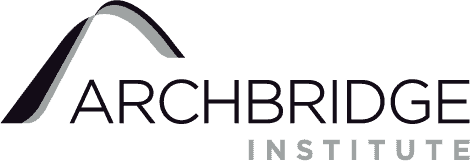This article was originally published on The Hill.
In recent weeks a hotly contested debate was reignited among academics and policy wonks over income inequality and tax progressivity. The issues have been discussed frequently in the news for much of the Democratic primary season. But the current academic debate has been reignited by economists Emmanuel Saez and Gabriel Zucman, who recently released a book and related website arguing for their version of justice in tax policy. In the political sphere, their work has inspired a few aspects of the platforms of candidates Elizabeth Warren (D-Mass.) and Bernie Sanders (I-Vt.).
Their arguments have been vigorously debated. To put it lightly, the issue of which income group pays more taxes is not easy to discern. A recent primer from the Joint Economic Committee summarizes the debate, concluding, “The question of who is right in these debates hinges on a variety of technical measurement questions and assumptions and the quality of various data sources. The debates have become inaccessible to even many observers with considerable economic training.”
While these debates are certain to continue, especially as the 2020 presidential campaign heats up, the hyper-focus on the wealthy (and how much they should pay in taxes) may be misplaced. For most Americans, inequality matters because people want to see the disadvantaged flourish, not because they want to tear down the rich. Some might be convinced of the falsehood that if someone has more wealth it follows that others necessarily have less. But most people who care about inequality care about the poor, and when they see the inequality gap growing, they’re worried that the poor are being left behind.
That concern is well-justified. There are very real and unjust barriers that prevent the poor from being able to move up the income ladder — barriers that those in the middle and upper classes can indeed overcome more easily. But instead of pretending that our problems will disappear if economists can manage to turn the tax dials just right, our focus should be on eliminating the unjust barriers that hold the poor back the most.
This means shifting our focus toward increasing the opportunities for upward economic mobility, rather than merely trying to balance out society’s bank accounts. But while it’s important to understand that income inequality and economic mobility are not the same things, many of these barriers likely affect both.
One barrier that prevents people from earning higher incomes is occupational licensing. These laws require would-be workers to complete mandatory requirements, such as a certain period of education or state-administered examinations, before they are allowed to work in a given occupation. These requirements are tougher for those with lower incomes or single parents with little free time to meet.
Between 1993 and 2012, the growth in occupational licensing requirements has been shown to be correlated, on average, with a 3.5 percent reduction in economic mobility and an increase of more than 8 percent in income inequality at the state level. Eliminating these unnecessary laws should be an important plank in any plan that truly aims to enable the poor to move up the income ladder and reduce the income gap.
Other barriers emerge much earlier. As technology improves, STEM programs in schools across America have proliferated. But while this is important, other forms of skills are often overlooked. Research from Nobel Laureate and Economist James Heckman has confirmed that “soft skills” are just as important (or perhaps even more important) than cognitive skills in achieving success in the labor market. Soft skills are loosely defined as a broad set of competencies, behaviors, attitudes and personal qualities that enable people to effectively navigate their environment, work well with others, perform well and achieve their goals. One effective mechanism to develop these skills is entry-level or part-time job experience.
Unfortunately, adolescent employment has been on the decline in recent years, meaning that the opportunity to develop these skills is missed by a growing portion of the population. There are several reasons for this decline, but higher minimum wage laws are certainly a factor. Higher minimum wage laws reduce the number of entry-level or low-skill jobs that are created. And as these well-intentioned laws reduce the availability of these jobs, they also reduce the opportunity to gain the skills necessary to succeed later in life. Kids from wealthier backgrounds can afford to take the unpaid internships that equip them with these skills, but those from lower income families rely on the kind of work that is quickly disappearing.
Furthermore, soft skill development begins very early in a child’s life, and here again those from wealthier backgrounds have a strong advantage. There is a class-gap in marriage rates that wasn’t there just a few decades ago. According to research from Charles Murray, the percentage of American kids who lived with both biological parents declined from 95 percent in 1960 for both affluent families and working-class families to 85 percent for affluent families and 30 percent for working-class families in 2005.
Research on economic mobility from Raj Chetty and his coauthors at Harvard University demonstrates that family structure (such as the two-parent household) is the most strongly correlated factor in predicting upward economic mobility. Further research by Heckman shows how parental engagement is a key factor in the successful development of soft skills that will help a child succeed both in school and later in life.
Because of the personal and individual nature of these circumstances, a government program is unlikely to be truly effective here, even if there is a role for them elsewhere. Instead, much more attention and support should be given to the nongovernment organizations that are working on these important issues on a personal basis.
We need honest and urgent conversations on these issues and to resist the temptation to dodge conversations that seem taboo or reduce public policy discussions into an oversimplified “us versus them” dynamic. Whether you care about income inequality as a signal that the poor are being left behind or you care about increasing opportunities for upward economic mobility, finding a consensus on what barriers prevent people from fulfilling their potential and removing those barriers is something that we can all get behind.
Gonzalo Schwarz is the founder and CEO of the Archbridge Institute, a Washington, D.C.-based think tank where Ben Wilterdink is director of programs.


